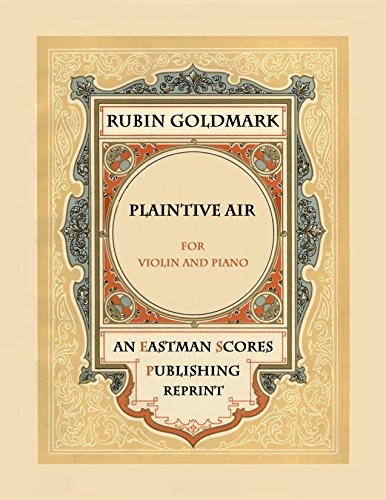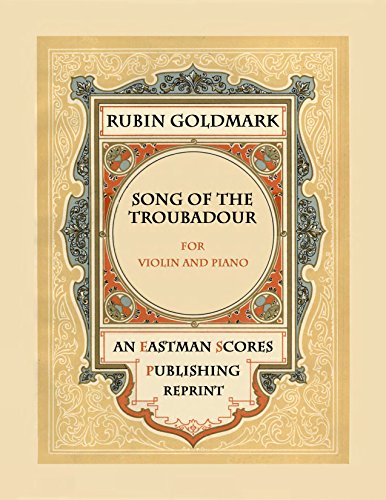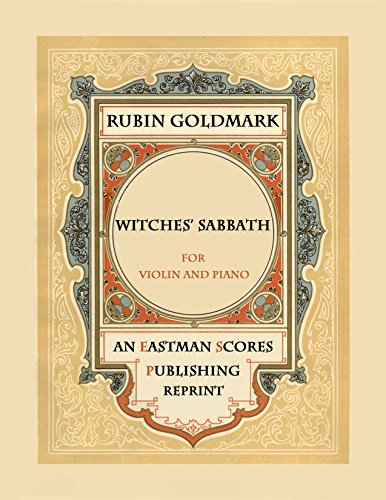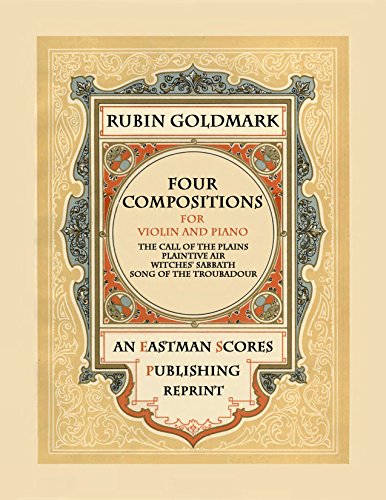Rubin Goldmark was an American composer, pianist, and educator.
Background
Goldmark was born on August 15, 1872, in New York City, the eldest of three children who survived childhood of Leo and Augusta (Stern) Goldmark and a nephew of the composer Carl Goldmark. His father was of Austrian birth, his mother a native of Württemberg. Leo Goldmark, a high-school teacher in Austria, had come to America in 1866 to work in a relative's factory in Brooklyn but turned instead to the law as a career. An enthusiastic amateur musician, he was extremely active in the musical life of New York City, being one of the founders and a performing member of the Oratorio Society as well as a founder and director of the New York Symphony Society.
Education
After preliminary education in New York City, Rubin Goldmark enrolled in the College of the City of New York, meanwhile studying piano privately with Alfred von Livonius. A year later, in 1889, he entered the Vienna Conservatory, where he studied piano with Anton Door and composition with Robert and Johann Nepomuck Fuchs. In 1900 Colorado College awarded him an honorary master of arts degree.
Career
Returning to New York in 1891, Goldmark became affiliated with the National Conservatory, where he taught piano and harmony, continued his own piano studies under Rafael Joseffy, and studied composition under the director, the composer Antonín Dvořák. Moving for reasons of health to Colorado Springs in 1894, Goldmark became director of the Conservatory of Music founded for him at Colorado College, a post he held from 1895 to 1901. He returned to New York in 1902 and established himself as a private teacher of piano and composition. At this time he also traveled extensively throughout the United States and Canada, presenting lecture-recitals on the Wagner operas. He was already beginning to be recognized as a composer, his Piano Quartet winning the Paderewski Chamber Music Prize in 1910. In 1911 he became director of the department of theory of the New York College of Music, teaching there until 1924, when he was invited to head the composition department of the newly established Juilliard Graduate School. Thereafter he taught at the Juilliard School until his death. As a teacher, Goldmark had a wide influence. He numbered among his students Aaron Copland, George Gershwin, and many others who later achieved recognition as composers and performers. Devoted to the classics and a firm believer in the traditional methods of teaching, he nevertheless encouraged his students to seek their own individuality, guiding them to a thorough knowledge of their craft and the literature of all periods of music, contemporary as well as traditional. His compositions reflect his idealism and thorough craftsmanship; many have been performed by leading American orchestras under such conductors as Serge Koussevitzky, Josef Stransky, and Willem Mengelberg. His orchestral works include Hiawatha (1900), Samson (1914), Gettysburg Requiem (1919), Negro Rhapsody (1922), and Call of the Plains (c. 1932); he also wrote several chamber-music works, songs, choruses, and piano pieces. He died in New York City, on March 6, 1936, of a circulatory condition.
Membership
President (1926-1936) of The Bohemians (New York Musicians Club); founder and officer of the Society for the Publication of American Music; president of the Musicians Foundation
Personality
Goldmark was a man of intellectual honesty, artistic integrity, and broad general culture who brought to his teaching a clear intelligence and an orderly, analytic mind. A modest man, he nevertheless persevered in his artistic convictions and was able to inspire his students with his own serious conception of art.









